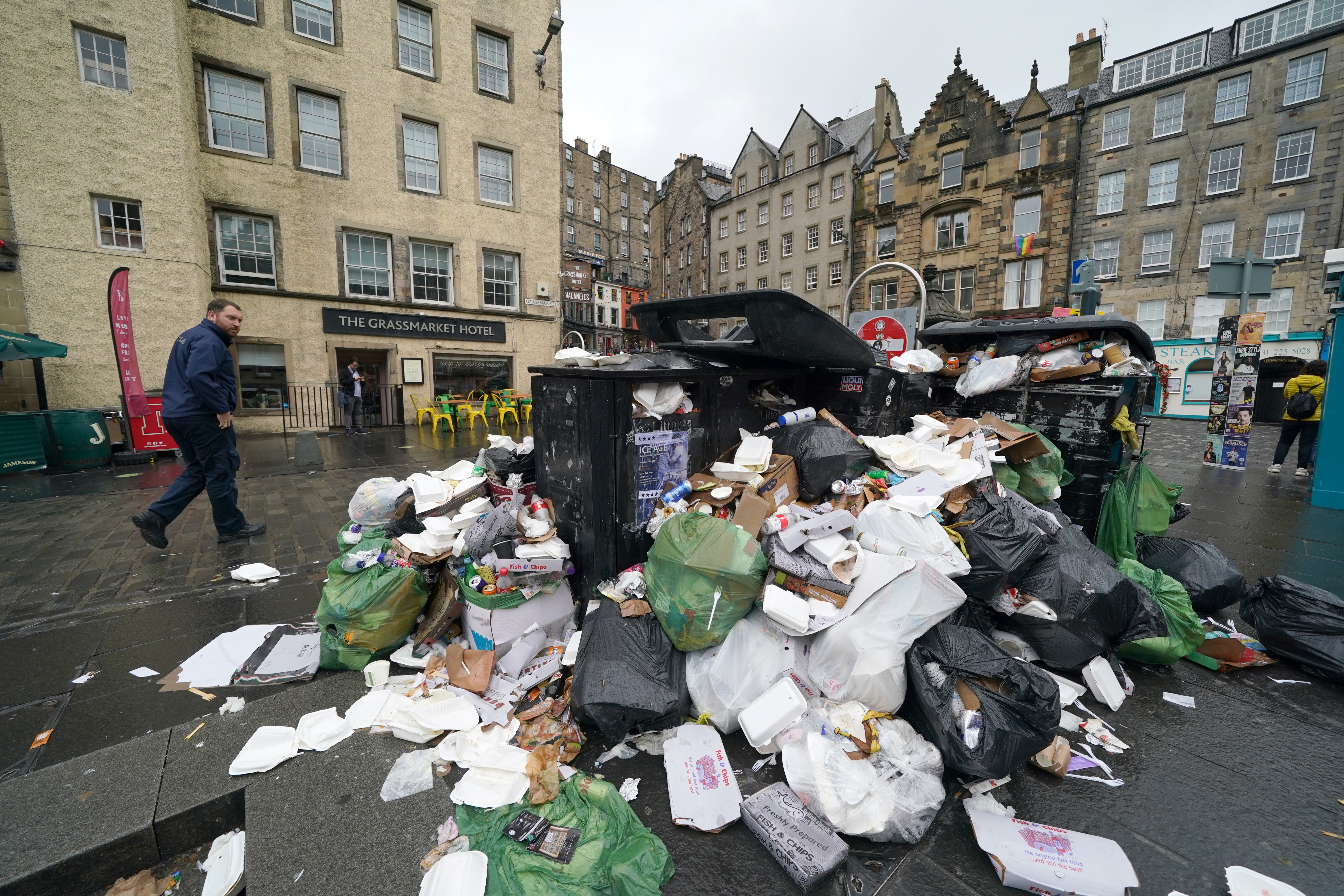Councils told ‘decontamination’ may be needed after strike sees rubbish pile up
Public Health Scotland issued the advice as a strike by waste workers in Scotland continued.

Your support helps us to tell the story
From reproductive rights to climate change to Big Tech, The Independent is on the ground when the story is developing. Whether it's investigating the financials of Elon Musk's pro-Trump PAC or producing our latest documentary, 'The A Word', which shines a light on the American women fighting for reproductive rights, we know how important it is to parse out the facts from the messaging.
At such a critical moment in US history, we need reporters on the ground. Your donation allows us to keep sending journalists to speak to both sides of the story.
The Independent is trusted by Americans across the entire political spectrum. And unlike many other quality news outlets, we choose not to lock Americans out of our reporting and analysis with paywalls. We believe quality journalism should be available to everyone, paid for by those who can afford it.
Your support makes all the difference.Talks aimed at ending a council worker strike that has seen rubbish pile up in Scottish streets are continuing amid warnings over the impact on public health.
Bosses at Public Health Scotland have told local authorities the “decontamination of public areas where bins have overflowed may be required”.
It comes as the organisation warned that “if organic waste builds up it can become a risk to human health”.
People are being advised to double bag items such as food waste and used nappies or put them in containers.
Public Health Scotland said the spread of strike action by council workers – sparked by a dispute over pay – may result in “more widespread waste accumulation”.
Waste workers at Edinburgh City Council walked out more than a week ago on August 18, with their action due to continue until August 30.
Meanwhile, cleaning staff at a number of other local authorities are now taking action, with cities including Glasgow and Aberdeen among those impacted.
Scottish Deputy First Minister John Swinney has already said the piles of rubbish building up throughout Edinburgh are “deeply concerning” for public health.
The waste strikes are scheduled to last into next week – with further dates for action already fixed if the pay row can not be resolved.
Public Health Scotland has said: “Organic waste includes food waste, animal waste (from food or excrement), human waste (including nappies) and manure.”
The health body said the impact of waste on health is “varied” and “may depend on numerous factors, including the nature of the waste and weather conditions that may accelerate decomposition of waste”.
It said: “There are some simple precautions which people can take in order to reduce the possible health impacts of waste.
“When handling waste at home, people should always wash hands thoroughly. Where possible, organic waste and medical waste should be stored in containers.
“If containers are not available, waste which is likely to rot or decompose should be double bagged.”
It said people should avoid contact with rubbish in public areas.
And it warned: “The accumulation of waste may increase fire risk so households may wish to consider their fire safety preparedness.”
As well as the strike by waste workers, council staff working in schools and education in parts of Scotland are preparing to walk out next month if no deal on pay can be reached.
Glasgow City Council, Scotland’s largest local authority, has already said this will see its primary schools and nurseries forced to close for the three days of the action, currently scheduled to take place between September 6 and 8.